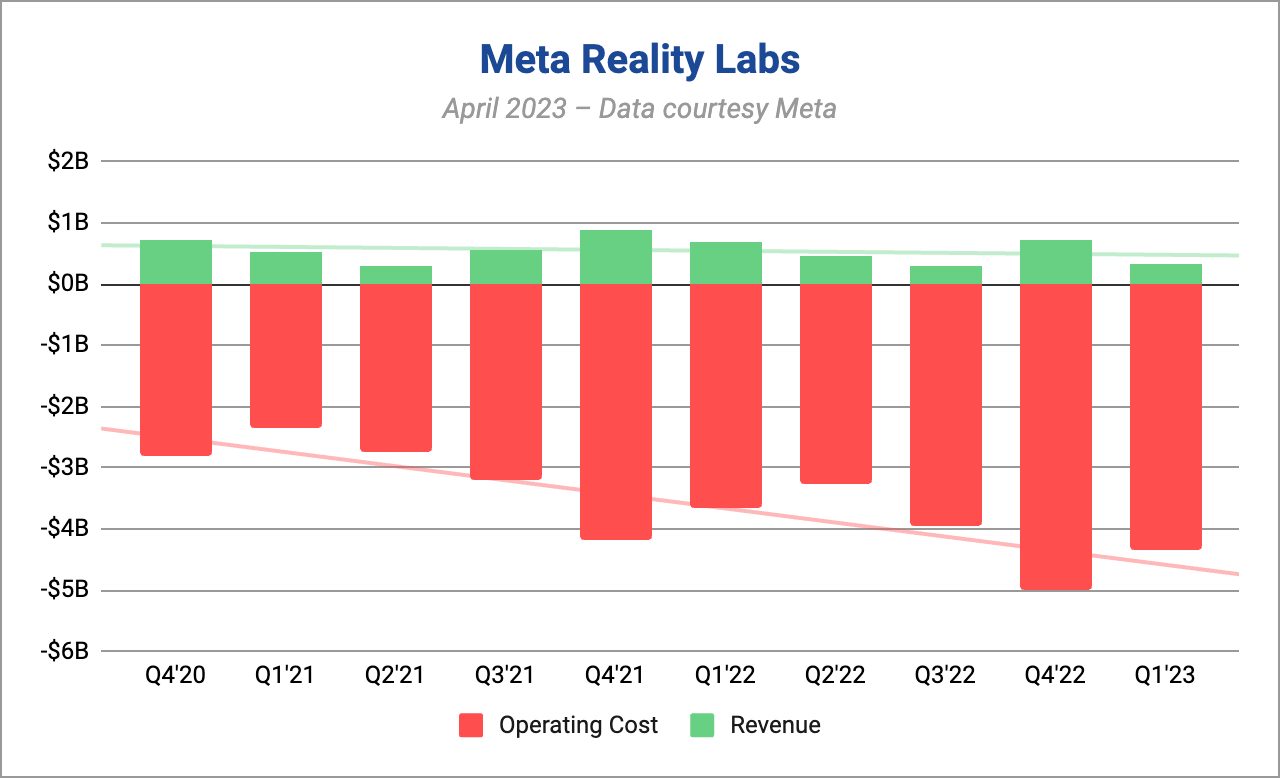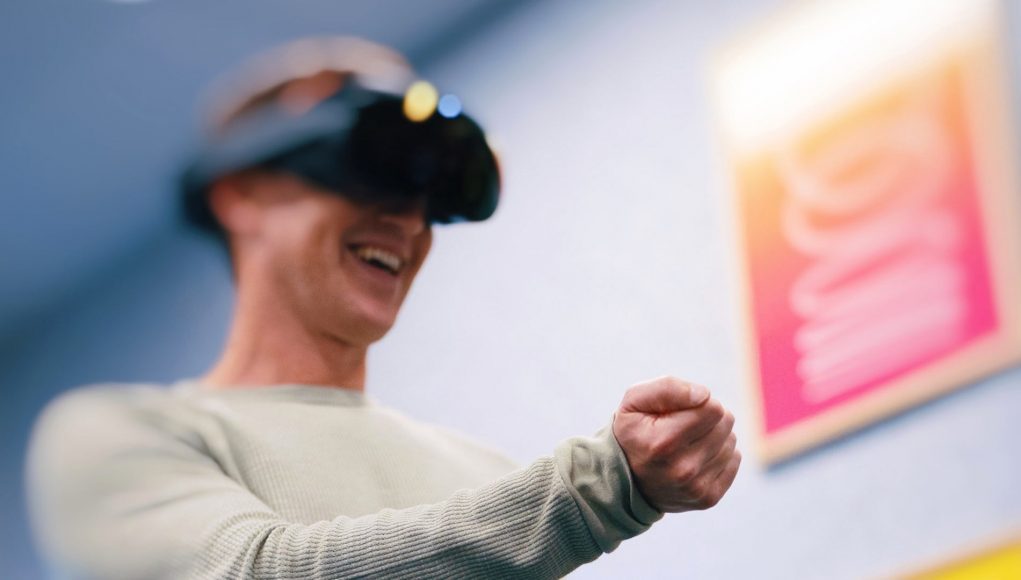Meta announced its latest quarterly results, revealing that the company’s Reality Labs metaverse division is again reporting a loss of nearly $4 billion. The bright side? Meta’s still investing billions into XR, and it’s not showing any signs of stopping.
Meta revealed in its Q1 2023 financial results that its family of apps is now being used by over 3 billion people, an increase of 5% year-over-year, but its metaverse investments are still operating at heavy losses.
Reality Labs is responsible for R&D for its most forward-looking projects, including the Quest virtual reality headset platform, and its work in augmented reality and artificial intelligence. Meta CEO Mark Zuckerberg has warned shareholders in the past that Meta’s XR investments may not flourish until 2030.
Here’s a look at the related income losses and revenue for Reality Labs since it was formed as a distinct entity in Q4 2020:

Meta reports Reality Labs generated $339 million in revenue during its first quarter of the year, a small fraction of the company’s 28.65 billion quarterly revenue. The bulk of that was generated from its family of apps—Facebook, Messenger, Instagram, and WhatsApp.
While the $3.99 billion loss may show the company is tightening its belt in contrast to Q4 2022, which was at an eye-watering $4.28 billion, Meta says we should still expect those losses to continue to increase year-over-year in 2023.
This follows the company’s second big round of layoffs, the most recent of which this month has affected VR teams at Reality Labs, Downpour Interactive (Onward) and Ready at Dawn (Lone Echo, Echo VR). The company says a third round is due to come in May, which will affect the company’s business groups.
Dubbed by Zuckerberg as the company’s “year of efficiency,” the Meta founder and chief said this during the earning call regarding the company’s layoffs:
“This has been a difficult process. But after this is done, I think we’re going to have a much more stable environment for our employees. For the rest of the year, I expect us to focus on improving our distributed work model, delivering AI tools to improve productivity, and removing unnecessary processes across the company.”
Beyond its investment in AI, Zuckerberg says the recent characterization claiming the company has somehow moved away from focusing on the metaverse is “not accurate.”
“We’ve been focusing on both AI and the metaverse for years now, and we will continue to focus on both,” Zuckerberg says, noting that breakthroughs in both areas are essentially shared, such as computer vision, procedurally generated virtual worlds, and its work on AR glasses.
Notably, Zuckerberg says the number of titles in the Quest store with at least $25 million in revenue has doubled since last year, with more than half of Quest daily actives now spend more than an hour using their device.
The company previously confirmed a Quest 3 headset is set to release this year, which is said to be slightly pricier than the $400 Quest 2 headset with features “designed to appeal to VR enthusiasts.”







